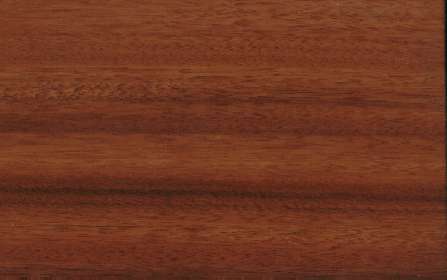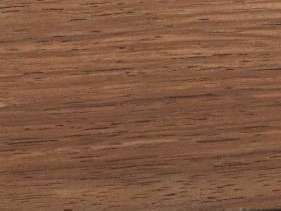 
Kasai (Pometia pinnata)
Family: Sapindaceae
Common names: Agupanga, Aiafai, Aklam, Ako, Akwa, Alanipo, Aloyam, Asam kuang, Atam, Awa, Awang, Baiuka, Balokanag, Bangked, Bas, Bayod, Bayuso, Bayuto, Bidoso, Bioso, Bolokanga, Bontog, Cha-i, Cuhing, Daganon, Daine, Doko, Ebo, Galunggung, Gasuli, Gema, Gia-gia, Gima, Goyod, Hatobu, Ibu, Ihi mendek, Iseh, Jagir, Jampano, Kabokabot, Kajoe sapi, Kalambanan, Kanggo, Karangyan, Karsai, Kasai, Kasai Sibu, Kase, Kasei, Kauna, Kayaui, Keba, Kia-kia, Kirone, Koengki, Koengkil, Koiawa, Kongkir, Koyaua, Kraungyan, Kuakia, Kuglik, Kungkil, Landung, Landur, Langsek anggang, Laui, Lauteneng, Leungsir, Loto, Maa, Madala, Madalo, Madlau, Magtalisa, Mala kobe, Mala ula, Malaguab, Malatagum, Malugai, Malugal, Manggis, Mansanab, Matoa, Megan, Menda, Minamukai, Mohui, Moroboro, Motoa, Muni, Nautu, Ngaa, Ngaache, Ngelak, Niai, Nonde, Ohabu, Okamu, Pakam, Pometia, Sapen, Senai, Sibu, Sida-i, Sioso, Suket, Takugan, Takupan, Talaburisu, Tanabag, Taun, Tauna, Tava, Tawa, Tawan, Teno akwa, Tigaiu, Togaui, Truong, Tugaui, Tun, Turtugaui, Tuun, Tze, Uyakya, wesel
Distributed in: India, Indonesia, Malaysia, Papua New Guinea, Philippines, Solomon Islands, Sri Lanka, Vietnam (Oceania and S.E. Asia)
Distribution overview: Various species in the genus Pometia are distributed in Malaysia, Indochina, the Philippines, and other western Pacific islands. They are widespread and occur in large numbers in coastal areas and foothills.
Common uses: Agricultural implements, Bedroom suites, Boat building (general), Boat building: decking, Boat building: framing, Boat building: planking, Boxes and crates, Bridge construction, Building construction, Building materials, Cabin construction, Cabinetmaking, Chairs, Chests, Concealed parts (Furniture), Construction, Cooperages, Core Stock, Decks, Decorative veneer, Desks, Dining-room furniture, Domestic flooring, Dowell pins, Dowells, Drawer sides, Factory construction, Factory flooring, Figured veneer, Fine furniture, Floor lamps, Flooring, Flooring: industrial heavy traffic, Furniture , Furniture components, Furniture squares or stock, Furniture, Handles: general, Hatracks, Heavy construction, Interior construction, Interior trim, Joinery (external): ground contact, Joinery, Kitchen cabinets, Ladders, Light construction, Living-room suites, Medicinal use, Mine timbers, Moldings, Musical instruments , Musical instruments, Musical instruments: piano, Office furniture, Organ pipes, Paneling, Parquet flooring, Plywood, Poles, Pulp/Paper products, Railroad ties, Shipbuilding, Sporting Goods, Tool handles, Toys, Turnery, Veneer
Environment profile: Rare in parts of its natural range
Tree size: Trunk diameter is 100-150 cm
Colors: the heart isReddish brown, Yellowand the sapwoodWhite to yellow, Yellow.The grain isWavy, the textureMedium to coarseand the lusterSlightly lustrous
Natural durability: Very durable, Vulnerable to pinhole borer and marine borer attack
Odor: No specific smell or taste
Silica Content: Siliceous
Kiln Schedules: UK=D U=T3D2/T3C1
Kiln Drying Rate: Rapid (<10 days for boards < 32 mm, to <30 days for boards >= 63 mm)
Drying Defects: Severe twisting/warping, Slight collapse and honeycomb
Ease of Drying: Slowly
Tree Identification: Bole/stem form is straight
Comments: General finishing qualities are rated as good General finishing qualities are rated as poor General finishing qualities are rated as satisfactory Tree produces edible fruit, leaves and bark used for medicinal purposes
Blunting Effect: Medium effect
Boring: Poor to very poor results
Carving: Poor to Very Poor Results
Cutting Resistance: Fairly Difficult to Very Difficult to saw
Gluing: Satisfactory gluing properties
Mortising: Poor to Very Poor
Moulding: Poor to Very Poor
Movement in Service: Poor to Very Poor
Nailing: Holds nails well, Holds satisfactorily
Planing: Poor to Very Poor
Resistance to Impregnation: Sapwood is moderately resistant
Response to hand tools: Variable qualities
Routing recessing: Satisfactory routing results
Sanding: Good sanding finish
Veneering qualities: No drying degrade. Dries flat without splitting, Suitable for peeling
Steam bending: Good
Screwing: Holds screws well, Screwing yields good results; Turning: Turns with moderate ease
Painting: Satisfactory; Polishing: Takes high polish; Staining: Staining is easy; Varnishing: Satisfactory;
- Numerical data Metric
- Numerical data English
- Strength properties
- References
 |
 |
 |
 |
| Item |
Green |
Dry |
Metric |
| Specific Gravity |
0,54 |
0,65 |
|
| Density |
|
705 |
kg/m3 |
| Bending Strength |
696 |
1150 |
kg/cm2 |
| Crushing Strength |
41 |
69 |
kg/cm2 |
| Hardness |
|
559 |
kg |
| Impact Strength |
63 |
81 |
cm |
| Shearing Strength |
|
136 |
kg/cm2 |
| Stiffness |
115 |
137 |
1000 kg/cm2 |
| Tangential Shrinkage |
7 |
|
% |
| Radial Shrinkage |
5 |
|
% |
| Weight |
705 |
689 |
kg/m3 |
| Maximum Load |
|
|
cm-kg/cm3 |
| Toughness |
|
384 |
cm-kg |
| Static Bending |
342 |
661 |
kg/cm2 |
|
 |  |  |  | | Item | Green | Dry | English | | Bending Strength | 9910 | 16370 | psi | | Crushing Strength | 584 | 994 | psi | | Density | | 44 | lbs/ft3 | | Hardness | | 1234 | lbs | | Impact Strength | 25 | 32 | inches | | Maximum Crushing Strength | 4947 | 7621 | psi | | Shearing Strength | | 1943 | psi | | Static Bending | 4872 | 9408 | psi | | Stiffness | 1642 | 1962 | 1000 psi | | Toughness | | 334 | inch-lbs | | Specific Gravity | 0.54 | 0.65 | | | Weight | 44 | 43 | lbs/ft3 | | Radial Shrinkage | 5 | | % | | Tangential Shrinkage | 7 | | % | | Volumetric Shrinkage | 13 | | % | |
Density (dry weight) = 38-45 lbs/cu. ft. 0
Density (dry weight) = 46-52 lbs/cu. ft. 0
Max. crushing strength = medium 0
Shearing strength (parallel to grain) = medium 0
Bending strength (MOR) = medium 0
Shrinkage, Tangential = fairly large 0
Shrinkage, Radial = fairly large 0
Modulus of Elasticity (stiffness) = medium 0
Max. crushing strength = high 1
Bending strength (MOR) = high 1
Modulus of Elasticity (stiffness) = high
Hardness (side grain) = soft
Shearing strength (parallel to grain) = low
Shrinkage, Tangential = moderate
Hardness (side grain) = medium
Shrinkage, Radial = moderate
Density (dry weight) = 53-60 lbs/cu. ft.
Shrinkage, Tangential = small
Shrinkage, Radial = small
Modulus of Elasticity (stiffness) = very low
Modulus of Elasticity (stiffness) = low
Density (dry weight) = 31-37 lbs/cu. ft.
Shrinkage, Tangential = large
Shrinkage, Radial = large
Resists denting and marring
Heavy
Density = high
Compression strength (parallel to grain) = high
Australia - N.S.W. Forestry Commission,1968,Working Properties of some Native and Imported Timbers,Forestry Commission of New South Wales, Technical Publication No.8Bolza, E. and N. H. Kloot.1966.The Mechanical Properties of 81 New Guinea Timbers.Technological Paper No. 41.Division of Forest Products, Commonwealth Scientific and Industrial Research Organization, Melbourne, Australia.Bolza, E., Kloot, N.H.,1976,The Mechanical Properties of 81 New Guinea Timbers,C.S.I.R.O. Div. Building Res. Tec.Paper (2nd series) 11Bolza, E.,1975,Properties and Uses of 175 Timber Species from Papua New Guinea and West,Irian,C.S.I.R.O. Div. Building Research Report,no.34Bolza, E.,1976,Timber and Health,Div. Building Res. C.S.I.R.O. AustraliaBolza, E.,1981,The Mechanical properties of 33 Solomon Islands timbers,C.S.I.R.O. Div. Building Research. Technical Paper (2nd series) No.37Boone, R.S., C.J. Kozlik, P.J. Bois, and E.M. Wengert. 1988.Dry Kiln Schedules for Commercial Woods - Temperate and Tropical.United States Department of Agriculture, Forest Service, General Technical Report FPL-GTR-57, Forest Products Laboratory, Madison, Wisconsin.Brown, W.H.,1978,Timbers of the World, No. 8 Australasia,TRADA, Red Booklet SeriesBudgen, B.,1981,Shrinkage and density of some Australian and South-East Asian Timbers,C.S.I.R.O. Div. building Res. Tech Paper(2nd Series) No.38C.S.I.R.O., Division of Building Research,1977,CSIRO, Division of Building Research, Information Service Sheet No.,10-13,TAUN,CSIRO, Division of Building Research, Information Service, Melbourne,,AustraliaCameron, S.,1945,Some Notes on Utilisation of Timbers in the South-West Pacific,New Zealand Journal of Forestry Volume 5(2) 117-127Da Costa, E.W.B., Osborne, L.D.,1967,Comparative decay resistance of 26 New Guinea timber species in,accelerated laboratory tests,Comm. Forestry Review 46(1) pp63-74Desch, H. E. 1957. Manual of Malayan Timbers. Malayan Forest Records, 28(30):315-318.Desch, H.E.,1954,Manual of Malayan Timbers (2 vols,Malayan Forest Records,no.15EcoTimber International, San Francisco, California.Personal Communication, 1993.Eddowes, P.J. 1977. Commercial Timbers of Papua New Guinea - Their Properties and Uses. Forest Products Research Center, Office of Forests, Department of Primary Industry, Papua New Guinea.Eddowes, P.J.,1977,Commercial Timbers of Papua New Guinea: Their Properties and Uses,Hebano Press, Port Moresby, Papua New GuineaGriffioen, K.,1967,Colloque sur le role des recherches techniques dans le developpement de,l'emploi des bois tropicaux en Europe,C.T.F.T.Hall, N., Et al,1972,The use of trees and shrubs in the dry country of Australia,Australian Government, Department of National Development, Forest and,Timber Bureau, CanberraI. Soerianegara and R.H.M.J. Lemmens (Editors,1993,Plant Resources of South-East Asia 5,(PROSEA, 1,Timber trees: Major commercial timbers,Pudoc Scientific Publishers, Wageningen 1993I.U.F.R.O.,1973,Veneer Species of the World,Assembled at F.P.L. Madison on behalf of I.U.F.R.O. Working Party on,Slicing and Veneer CuttingKeating, W.G., Bolza, E.,1982,Characteristics properties and uses of timbers. South East Asia, Northern,Australia and the Pacific,C.S.I.R.O. Div. Chemical Technology,Inkata Press,1Kininimonth, J.A.,1982,Properties and uses of the timbers of Western Samoa, Indigenous,Hardwoods,Forest Research Institute, Rotorua, New ZealandKloot, N. H. and E. Bolza.1961.Properties of Timbers Imported into Australia.Technological Paper No. 12.Division of Forest Products, Commonwealth Scientific & Industrial Research Organization, Melbourne, Australia.Kraemer, J.H.,1951,Trees of the Western Pacific Region,West Lafayette, Indiana U.S.A.Kukachka, B.F.,1970,Properties of Imported Tropical Woods,Forest Research Paper FPL 125Lauricio, F. M., Bellosillo, S. B., The Mechanical and Related Properties of Philippine Woods, The Philippine Lumber Journal, 12(5):A-H.Lee, Y.H., Lopez, D.T.,1968,The Machining Properties of some Malayan Timbers,Malayan Forester,3,pp194-210Lincoln, W.A. 1986. World Woods in Color. Linden Publishing Co. Inc., Fresno, California.Martawijaya, A., Kadir, K., Kartasujana, I.,1986,Indonesian Wood Atlas. Vol.1.,Department of Forestry Agency for Forestry Research and Development.,Bogar-IndonesiaNetherlands - Houtinstituut T.N.O.,1964,MATOA (Pometia pinnata Forst.,Houtinstituut T.N.O. DelftPapua New Guinea Department of Forests,1972,New Horizons,Forestry in Papua New Guinea,Jacaranda Press PTY Ltd, BrisbanePapua New Guinea,1982,Papua New Guinea timbers - technical data,Forest Industries Council P.N.G.Pleydell, G.J.,1970,Timbers of the British Solomon Islands,United Africa Company (Timber) Ltd, LondonReyes, L.J.,1938,Philippine Woods,Commonwealth of the Philippines Department of Agriculture and Commerce,Technical Bulletin,No.7Solomon Islands Forest Department,1970,Solomon Islands Timbers Pometia pinnata,Solomon Islands Timbers Timber Leaflet, Forestry Department, HoniaraSolomon Islands,1976,Solomon Islands Timbers - Major Species,For Div. Min. Nat. Resources, Honiara, Timber Booklet 1Sono, P.,1974,Merchantable Timbers of Thailand.,Forest Products Research Division, Royal Forest Department, Bangkok,,Thailand.The Ecological Trading Company Limited (ETC, Newcastle upon Tyre, United Kingdom.Tsumoto, T., Karasawa, H.,1975,The Properties of Tropical Woods 21,Government of Japan Forest Experimental Station Bulletin,No.227WCMC. 1992. Conservation Status Listing - Trees and Timbers of the World. World Conservation Monitoring Center-Plants Programme, Cambridge, CB3 ODL, United Kingdom.
|









